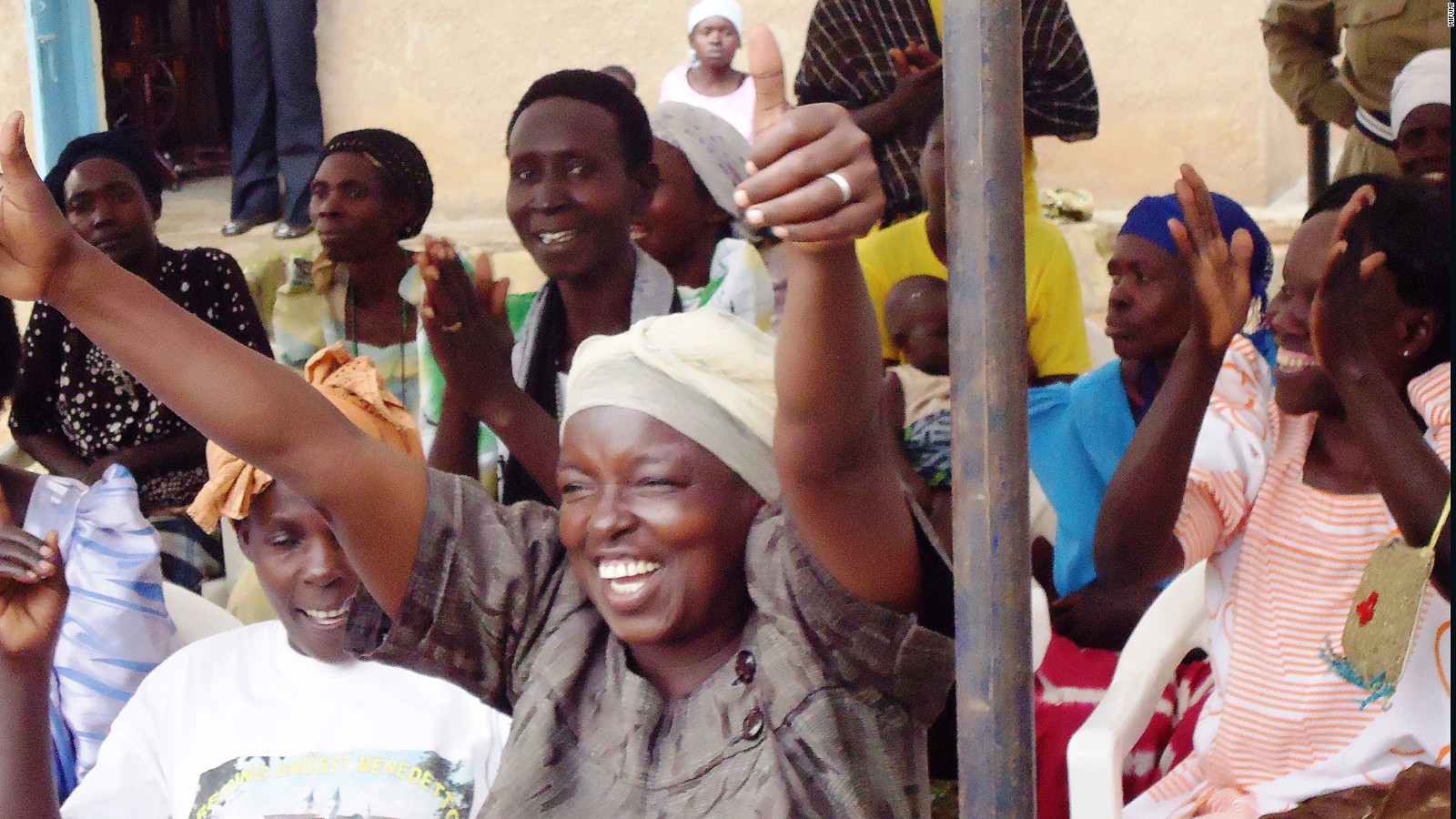Imagine having to pay to divorce your
abuser. One woman's 15-year battle
means you now won't have to
abuser. One woman's 15-year battle
means you now won't have to

Women of Kirewa, Uganda, celebrating.
Story highlights
- Uganda has banned the practice of making divorced women refund their bride price
- Campaigners say bride prices devalues women and is at the root of much of the violence they experience
(CNN)Florence Musidika was a primary school teacher in an unhappy and violent marriage. In 2002 she asked her husband for a divorce. In response, as she bent over one morning to light a fire to make breakfast for her three children, a grenade planted by her husband in the charcoal exploded in her face.
Miraculously, the then 27-year-old from Mbale in eastern Uganda survived the blast, but was soon confronted by a new injustice: under customary law her marriage to her abusive husband could not be dissolved until her family had refunded the bride price he had paid by in exchange for her hand.
Musidika is just one of many women whose families knew of her suffering but, unable to return the payment -- often made in livestock -- they sent her back to her abuser, imploring her to "try and be a good wife," explains Atuki Turner, the founder of women's rights organization Mifumi.
Landmark ruling
For the last 15 years, Mifumi has been campaigning to get bride price banned because, as Turner argues, it devalues women and is at the root of much of the violence Ugandan women experience.
On 6 August, Uganda's Supreme Court, agreed in part with Mifumi and ruled that the practice of refunding bride price on the dissolution of a customary marriage was unconstitutional and should be banned. They disagreed that bride price itself was unconstitutional but the ruling is the beginning of a process of shifting bride price from a fee paid for a woman into a gift -- not demanded and not refunded.
Speaking from Kampala, Turner describes how she felt on hearing the news: "I was euphoric! The night before the ruling I couldn't sleep but [as soon as I heard] I was shouting for joy. We have struggled for the last 14 years...I am really happy. My heart is full."
Turner, a Ugandan filmmaker and lawyer now resident in Bristol, England, established Mifumi in 1995, starting first with a promise to her parents to build a primary school in the village of the same name, where her parents retired.
When construction stalled, Turner turned her attention to women's economic independence and quickly learned that domestic violence was a pervasive problem. "Men would take the money their wives had borrowed on credit. When the women would ask for it back, they were beaten."
In 1999 Mifumi, whose aim is to end violence against women in all its forms, opened its first legal and medical advice center. By 2000, they realized that 60% of reported cases were related to bride price and in 2007 first appeared before the Constitutional Court to make the case that bride price caused domestic violence. It took three years for the case to be heard and in 2010, the judges ruled four to one against Mifumi. An appeal was lodged before the Supreme Court that same year, heard in 2013 and this time, the court ruled in favor.
Becoming the 'mad, bad woman'
Turner talks about how attitudes to her changed as she worked to dismantle the practice of paying and refunding bride price -- that is as much about culture as it is about poverty.
"When we started building the school, Mifumi was the darling of the society. When we started talking about bride price, people accused me of coming back with western feminist values. I became the mad, bad woman who was trying to destroy our culture.
There was so much resistance to change. When we held the first international conference on bride price in Africa, my whole family was ostracized."
While Mifumi celebrates the recent victory and the slow but steady change in cultural norms in Uganda, Turner recognizes that her job is far from over. "I think the world is ready for change. Cultural leaders are now keen but our neighbors in Kenya upheld the practice in a constitutional review in 2013."
Paying bride price in Uganda
Paying bride price is common across Africa, and in many parts of the continent it is a symbolic act rather than a binding contract.
In Uganda, the custom is practiced all over the country -- adhered to most strictly in the north and the east where, Turner says, men pay extortionate prices for their wives. "In the west of Uganda they do not tend to ask for a refund", Turner explains. "In the capital, Kampala, it's all about lavish gifts, making marriage a competition that many young people cannot afford to enter."
According to Turner the practice not only means that women are often treated as commodities in life, but also have little dignity in death. She tells the story of a man who joins the campaign to end bride price after his mother-in-law refused to allow him to bury his dead wife. He had not paid bride price and so the families haggled over the body for seven days.
Source:- http://edition.cnn.com/2015/08/19/africa/bride-price-uganda-mifumi-atuki-turner/



No comments:
Post a Comment